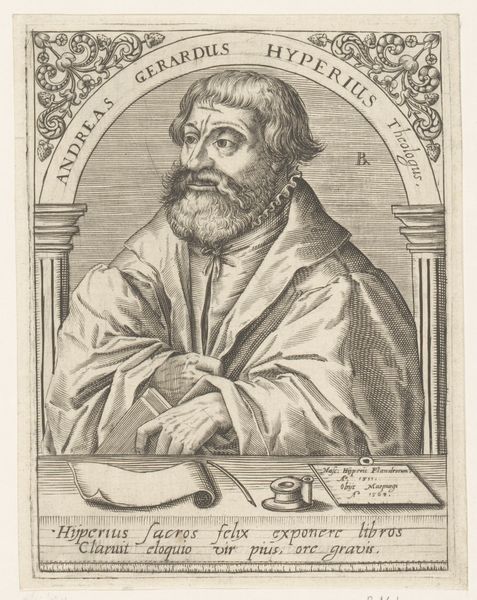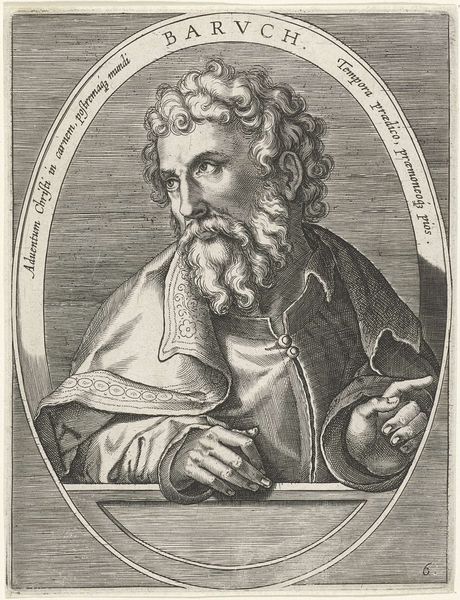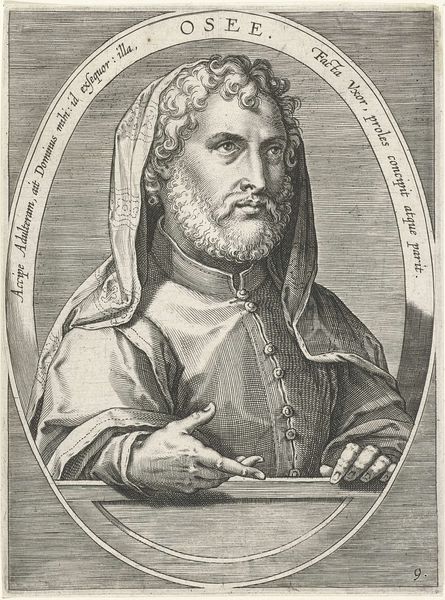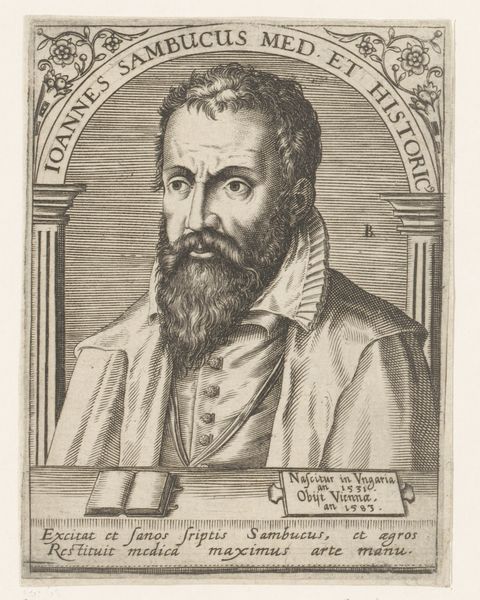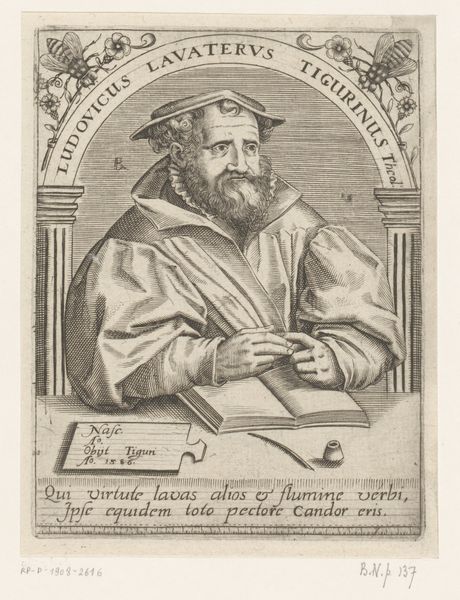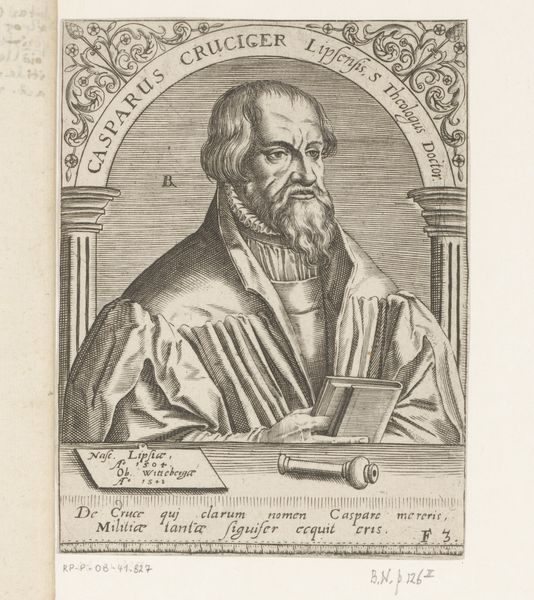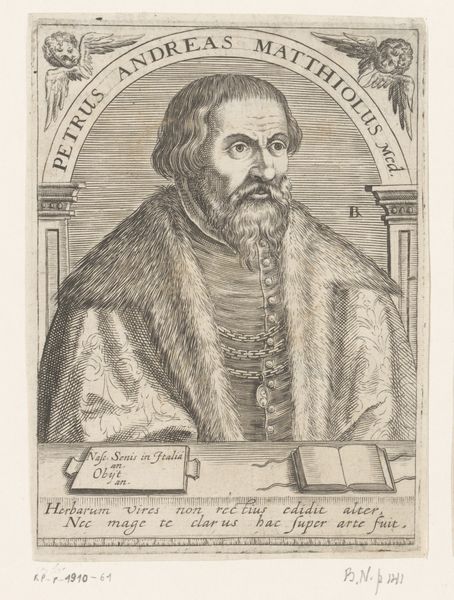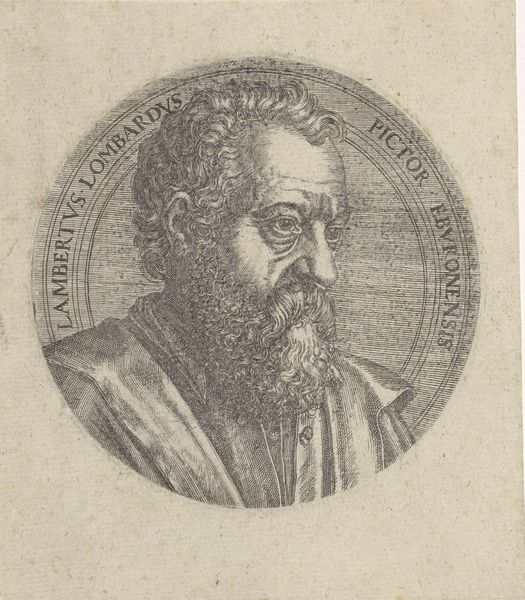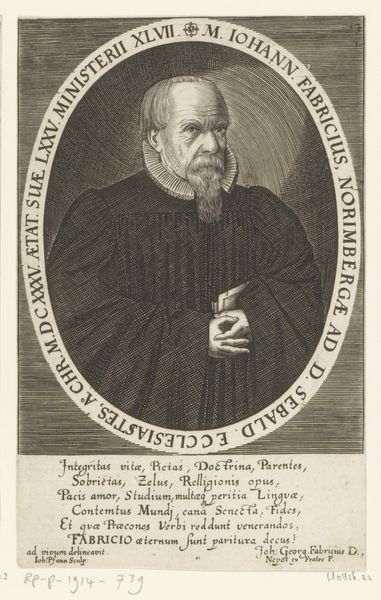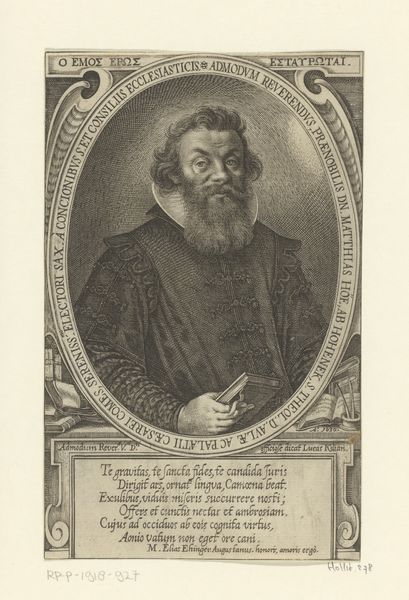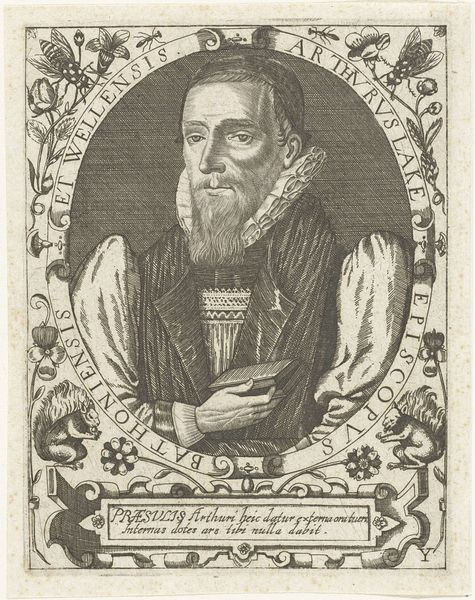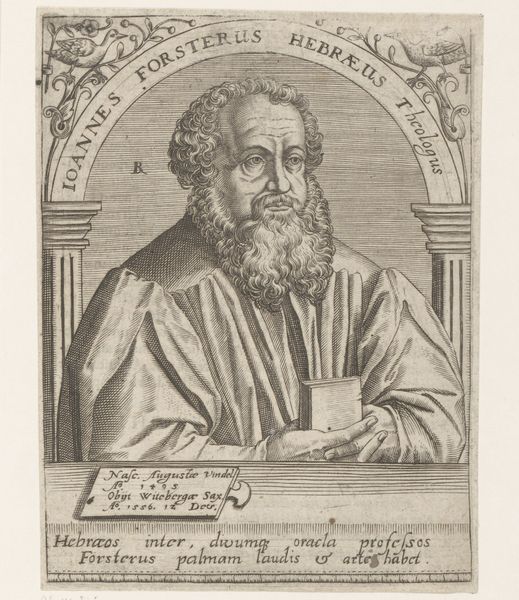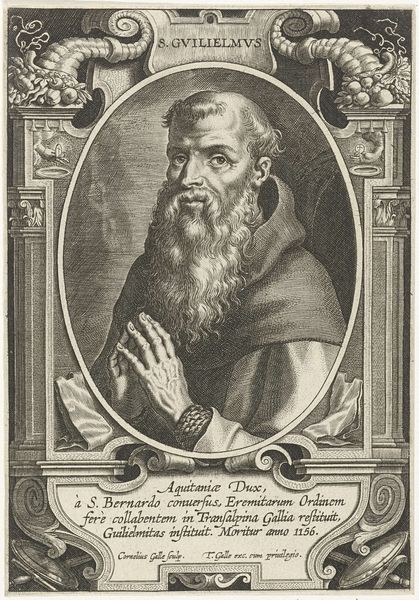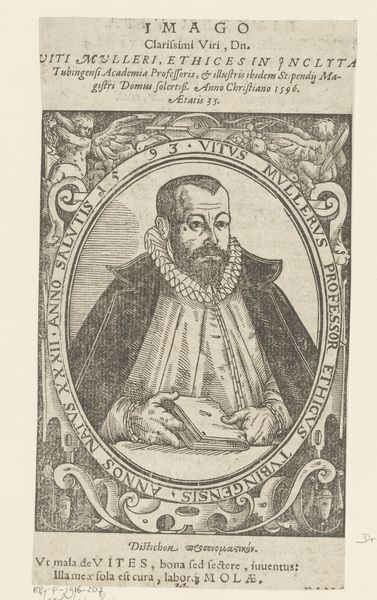
engraving
#
portrait
#
old engraving style
#
figuration
#
11_renaissance
#
portrait reference
#
limited contrast and shading
#
line
#
portrait drawing
#
history-painting
#
northern-renaissance
#
engraving
Dimensions: height 138 mm, width 107 mm
Copyright: Rijks Museum: Open Domain
This portrait of Georg Major was made with engraving by Robert Boissard. The image is made up of lines incised into a metal plate, which would then be inked and printed, allowing for multiple impressions. The artist has rendered the textures of fur and hair with fine detail, conveying the dignity of the sitter through these material signifiers. The image is surrounded by a decorative border of foliage. The inscription reveals that Major was a theologian from Wittenberg, suggesting the print may have been produced for circulation among an intellectual or religious community. Engraving in the 16th and 17th centuries was a highly skilled practice, demanding precision, control, and long years of training. Yet, unlike painting or sculpture, printmaking was a reproductive medium, a technology linked to the wider distribution of knowledge and the growth of a literate public. This portrait therefore operates on multiple levels, both as a celebration of individual achievement and an example of early media culture.
Comments
No comments
Be the first to comment and join the conversation on the ultimate creative platform.
